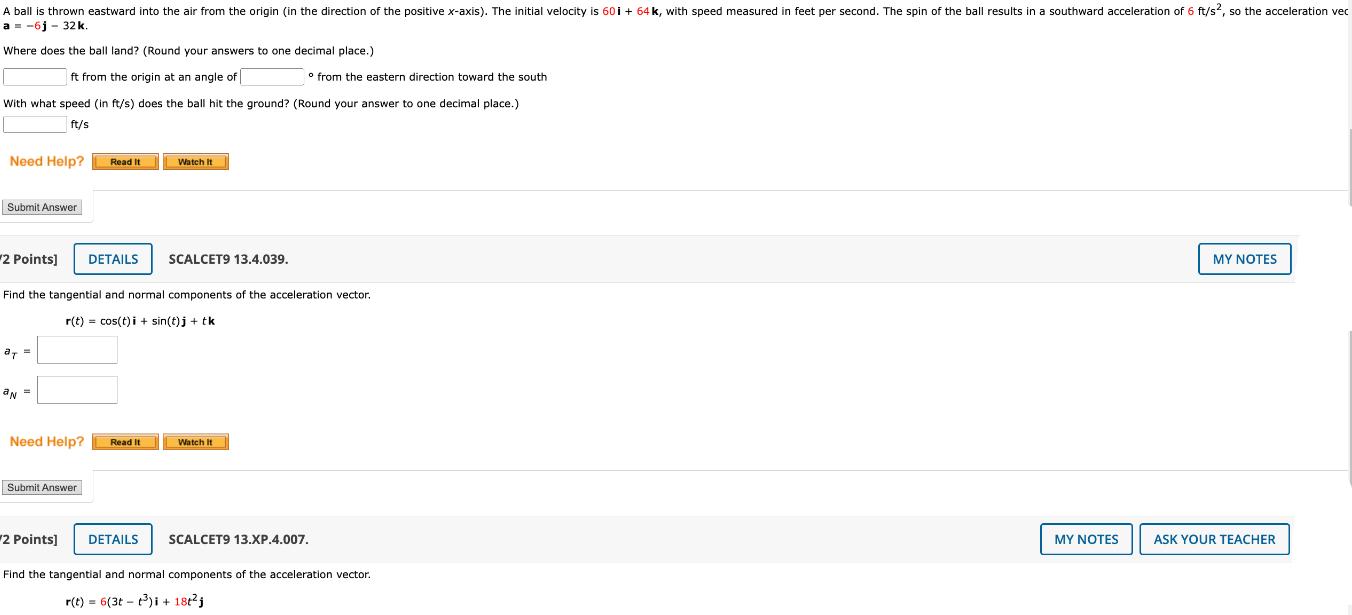Answered step by step
Verified Expert Solution
Question
1 Approved Answer
A ball is thrown eastward into the air from the origin (in the direction of the positive x-axis). The initial velocity is 60i +

A ball is thrown eastward into the air from the origin (in the direction of the positive x-axis). The initial velocity is 60i + 64k, with speed measured in feet per second. The spin of the ball results in a southward acceleration of 6 ft/s, so the acceleration vec -6j-32k. Where does the ball land? (Round your answers to one decimal place.) ft from the origin at an angle of from the eastern direction toward the south With what speed (in ft/s) does the ball hit the ground? (Round your answer to one decimal place.) ft/s Need Help? Read It Watch It Submit Answer 2 Points] DETAILS SCALCET9 13.4.039. Find the tangential and normal components of the acceleration vector. r(t) = cos(t)i + sin(t)j + tk aN = = Need Help? Submit Answer Read It Watch It 2 Points] DETAILS SCALCET9 13.XP.4.007. Find the tangential and normal components of the acceleration vector. r(t)=6(3t 3)+18tj MY NOTES MY NOTES ASK YOUR TEACHER
Step by Step Solution
There are 3 Steps involved in it
Step: 1

Get Instant Access to Expert-Tailored Solutions
See step-by-step solutions with expert insights and AI powered tools for academic success
Step: 2

Step: 3

Ace Your Homework with AI
Get the answers you need in no time with our AI-driven, step-by-step assistance
Get Started


